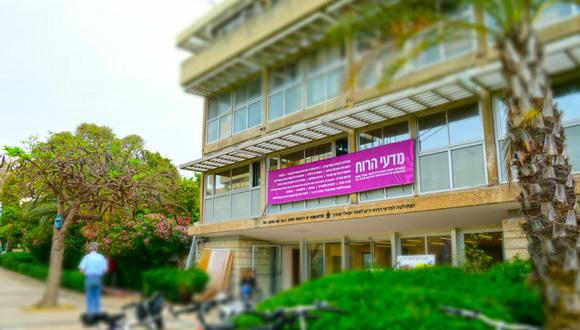About the Faculty of Humanities
The information revolution is redefining knowledge and traditional views of education. To keep abreast of the meteoric developments, both students and scholars must be given the resources to explore material of constantly increasing complexity. At the same time, institutions of higher learning must have the scope and flexibility to accommodate the many students for whom the Bachelor's degree will be the only higher education they seek, and those for whom it is merely the gateway to advanced degrees and specialized training.
The Faculty of Humanities is ideally situated to meet these challenges. With an infrastructure that brings History, Jewish Studies and Cultural Studies under one roof, a distinguished faculty with a commitment to excellence in scholarship, and an interdisciplinary approach to teaching and research, students at all levels are offered the pluralistic education essential to keeping them in the mainstream. Those seeking a general education have the choice of a broad range of courses and curricula, and those aspiring to a professional or academic career are offered advanced degrees fashioned from a variety of disciplines taught by outstanding teachers.
New programs of study and research are being forged in the Faculty of Humanities. Barriers between traditional fields are being broken down. Multidisciplinary research teams are being formed, and traditional areas are being combined into novel teaching and research programs. Many of these programs are energized by the cross-fertilization between Jewish and general studies; between Mediterranean and Asian historians with their broad perspective on issues such as peace and security in the region; among philosophers, linguists and scholars of Bible, Arabic literature and Medieval history as they approach the study of religion or the meaning of science.
The unique configuration of departments and research centers also makes the Faculty an ideal venue to study the three major monotheistic religions, and to explore such timely subjects as the emergence of nationalism and fundamentalism and the rise of ethnic strife following the dissolution of the Soviet Union. Indeed, the recent wave of immigrants includes scholars and students who have brought with them the languages and an intimate knowledge of the history, politics and cultura l patterns of their previous homes in the former Soviet Union -- enriching the entire university community.
The international standing of members of the faculty is reflected in their positions of leadership in the academic, cultural and political life of Israel. Public service is a watchword in the Faculty of Humanities. Faculty are members of The Israel Academy of Science and the Humanities. Six have been awarded the Israel Prize, the country?s highest recognition for scholarly achievement. The Israeli Academic Center in Cairo, established as a provision of the peace agreement between Israel and Egypt, was founded and headed by a member of the Faculty, and two additional directors are also faculty scholars. Two professors served as ambassadors -- to Spain and Egypt -- and two are currently ambassadors -- to the United States and Jordan.


